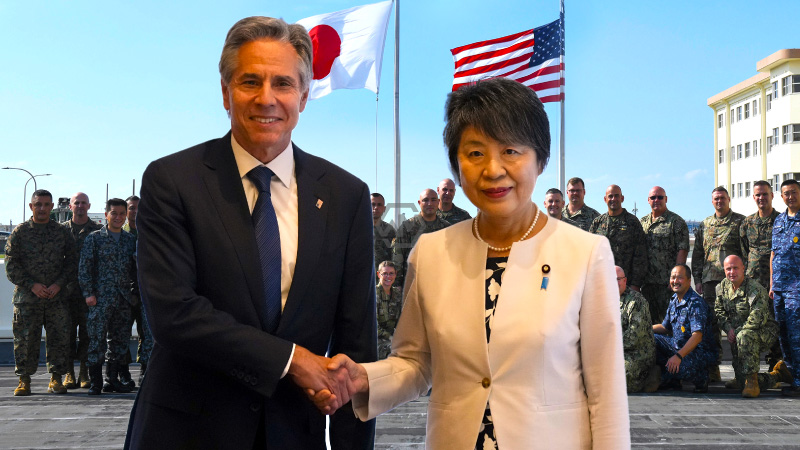- US and Japan to upgrade command and control systems of US forces in Japan.
- Increased production of American-licensed missiles in Japan.
- Trilateral defense talks held with South Korea to bolster regional security.
The recent US-Japan security talks in Tokyo emphasized upgrading the command and control systems of US forces stationed in Japan. This modernization is expected to streamline joint military operations and exercises, thereby enhancing the overall efficiency and effectiveness of their alliance.
Moreover, the talks marked a historic shift with Japan openly discussing the US commitment to “extended deterrence,” including nuclear weapons, amidst growing nuclear threats from China and Russia.
US-Japan Defense Talks: Bolstering Cooperation in Response to Rising Threats
During the recent security talks in Tokyo, the US and Japan agreed on significant enhancements to the command and control systems of US forces based in Japan. This initiative aims to improve the coordination of joint operations and exercises, reflecting a more integrated and responsive military alliance.
Additionally, Japan will ramp up the production of American-licensed missiles, such as PAC-3 interceptors, underlining a commitment to strengthening its defense industry and ensuring a robust supply chain for regional security.The talks also saw Japan addressing the sensitive issue of nuclear deterrence with the US for the first time, highlighting the increasing importance of a strong defensive posture in the face of nuclear threats from China and Russia.
In a separate development, the first-ever trilateral defense meeting with South Korea was held, emphasizing the need for institutionalized defense cooperation and joint exercises among the three nations. This trilateral cooperation is designed to provide a united front against regional security challenges and ensure stability in the Indo-Pacific.
The US-Japan security talks mark a pivotal step in reinforcing their military alliance and addressing regional security threats. With enhanced command systems, increased missile production, and deeper trilateral cooperation with South Korea, both nations are better positioned to maintain stability and deter aggression in the Indo-Pacific.
“We are at a turning point in history as the rules-based, free and open international order is shaken to the core.” – Yoko Kamikawa



